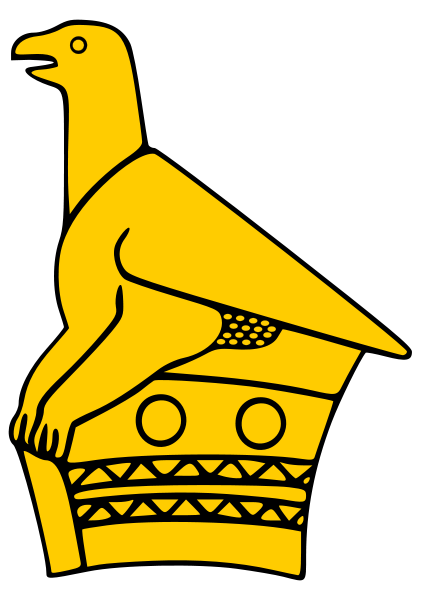Some Charities Worth Supporting
Please give generously
The Yorkshire Air Museum is the largest independent air museum in Britain and is also the location of The Allied Air Forces Memorial. Situated on the former World War II RAF Bomber Command Station at Elvington near the City of York, it is the largest and most original WWII station open to the public and includes over 15 top class exhibitions, a large range of military vehicles and 50 historic aircraft plus a large NAAFI style restaurant and shop.
Hessilhead cares for Scotland's injured and orphaned wildlife. It has been running for over 25 years, and occupies a 20 acre site, including woodland, marsh and open water near Beith in North Ayrshire which gives a variety of release sites for their patients. Hessilhead aims to rescue, treat, rehabilitate and release birds and animals back to the wild, and has facilities and experience to treat all species of Scottish wildlife. Facilities at the Centre include an intensive care unit, a swan/seal hospital with indoor pool, a hedgehog unit, a surgery with x-ray equipment and more than 60 outdoor aviaries, enclosures and release pens.
The Trust aims to preserve Bletchley Park, which, during World War II, was the site of the United Kingdom's main decryption establishment, the Government Code and Cypher School, where ciphers and codes of several Axis countries were decrypted. The high-level intelligence produced at Bletchley Park, codenamed Ultra, provided crucial assistance to the Allied war effort and is said to have shortened the war by two to four years, with the outcome of the war being uncertain without it.
The Royal Air Force Benevolent Fund is the Royal Air Force's leading welfare charity, providing financial, practical and emotional support to serving and former members of the RAF - regardless of rank - as well as their partners and dependents.
Established in 1886, The Mayhew is one of the busiest and most effective rescue centres in London, helping thousands of animals escape from a life of cruelty and neglect each year. They provide shelter and care for cats, dogs, rabbits and when the need arises, for a wide variety of other animals.
World Horse Welfare is a charity dedicated to giving abused and neglected horses a second chance in life. Apart from campaigning, educating and training in the area of horse welfare, they provide veterinary care abroad and run four Rescue and Rehoming Centres in Great Britain.
Cats Protection is dedicated to rescuing and rehoming stray, unwanted or homeless cats, educating people about cats and cat welfare and running a neutering scheme for owners on a limited income. In 2010 the charity helped over 230,000 cats and its network had 29 adoption centres, 256 voluntary-run branches, one rehoming centre and 63 charity shops with some 7,800 volunteers located throughout the UK.
Dogs Trust is the largest dog welfare charity in the UK. Their mission is to bring about the day when all dogs can enjoy a happy life, free from the threat of unnecessary destruction. Dogs Trust runs 17 rehoming centres across the UK and Ireland and also runs microchipping and neutering schemes both in the United Kingdom and abroad.
The Whale and Dolphin Conservation Society is a wildlife charity that is dedicated solely to the worldwide conservation and welfare of all whales, dolphins and porpoises (cetaceans). Their objectives are to reduce, and ultimately, eliminate the continuing threats to cetaceans and their habitats and to raise awareness of cetaceans, educating people about the need to address the continuing threats to their welfare and survival.
The Donkey Sanctuary is devoted to the welfare of donkeys. It has sanctuaries, holding bases and foster homes in nine European countries: United Kingdom, Ireland, Cyprus, France, Greece, Italy, Portugal, Romania and Spain, where it provides a permanent home to more than 4,000 donkeys. They also operate major projects in Egypt, Ethiopia, India, Kenya, and Mexico, providing free mobile veterinary clinics and education for donkey owners.
The charity works to assist retired, former or serving servicemen and women who have lost a limb or limbs, or one or both eyes, or the use of limbs as a result of injury sustained in the line of duty whilst serving in any branch of Her Majesty's Forces or Auxiliary Forces, and to provide help and support, where called upon, to their dependents. The organisation can also offer help to service personnel who have lost limbs after leaving the Forces.
Combat Stress delivers dedicated treatment and support to ex-Service men and women with conditions such as Post Traumatic Stress Disorder, depression and anxiety disorders. Their services are provided free of charge to the Veteran. Clinical treatment is provided at 3 short-stay residential centres and they also provide access to specialist clinical support in the community.
The Royal Society for the Protection of Birds works to promote the conservation and protection of birds and the wider environment through public awareness campaigns, petitions and through the operation of nature reserves throughout the United Kingdom.
The Scottish SPCA is Scotland's principal animal welfare charity. It seeks to encourage kindness to animals, prevent cruelty through education, investigate abuse, rescue animals in distress and find animals new homes.
The Society for the Protection of Animals Abroad is a voluntary British organisation with the objective and purpose of providing veterinary care to working animals in communities around the world. The charity helps to treat working animals, like donkeys, mules, and camels, whenever they are mistreated, neglected or struggling to survive, using methods such as in-country hospitals and mobile clinics, and it also aims to teach people how to prevent unnecessary harm to working animals.
The Brooke Hospital is an international animal welfare organisation dedicated to improving the lives of working horses, donkeys and mules in some of the world's poorest communities. They provide treatment, training and programmes around animal health and wellbeing, operating across Africa, Asia and Latin America.
The Trust is an international charity working globally towards a mission of saving species from extinction. Its International Training Centre located in Jersey supports the development of future conservationists and has educated over 3000 graduates from 128 countries. Through the skills of the staff at their wildlife park and their field programmes they act to save some of the most threatened species in the most threatened places.
The Royal National Lifeboat Institution is a charity that saves lives at sea around the coasts of Great Britain, Ireland, the Channel Islands and the Isle of Man, as well as on selected inland waterways. The RNLI operates 444 lifeboats (332 are on station, 112 are in the relief fleet), from 235 lifeboat stations around the coasts of Great Britain, Ireland, the Isle of Man and the Channel Islands and in 2009 rescued an average of 22 people a day in 2009.
The PDSA operates throughout Great Britain through animal hospitals and practices, providing free veterinary services for the pets of people in need and promoting responsible pet ownership. It carries out more than one million free veterinary consultations a year.
The Sanctuary’s aims are not just to rescue neglected, unwanted or abused horses but when possible to rehabilitate, retrain and eventually rehome them into loving, knowledgeable environments. They also try to educate people on all aspects of horse welfare. They care for over 300 horses and ponies, most of which live at loan-homes away from their 3 farms in Devon. They also work proactively with other equestrian groups and charities as well as the local and national media in promoting awareness of equine issues.
The Trust operates rescue centres for unwanted, ill-treated and abandoned animals and birds through centres in Hertfordshire, Berkshire, Somerset and Cornwall and a branch in South West Essex. Apart from dogs and cats, it is also home to a surprisingly wide variety of other animals including farm animals, horses and donkeys, ducks, poultry and small domestic pets, as well as providing short term care and rehabilitation for wildlife.



 South Devon Sound Radio
South Devon Sound Radio Museum of hp Calculators
Museum of hp Calculators Apollo Flight Journal
Apollo Flight Journal Apollo Lunar Surface Journal
Apollo Lunar Surface Journal Cloudy Nights Classic Telescopes
Cloudy Nights Classic Telescopes martini in the morning - The Lounge Sound
martini in the morning - The Lounge Sound The Savanna - Saffer Shops in London
The Savanna - Saffer Shops in London Linux Mint
Linux Mint
 Movement for Democratic Change
Movement for Democratic Change